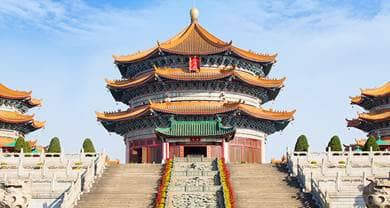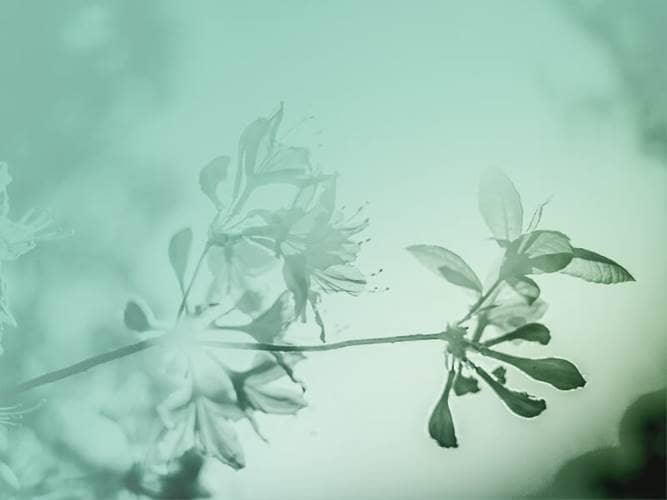- Trending:
- Forgiveness
- |
- Resurrection
- |
- Joy
- |
- Feminism
- |
- Afterlife

RELIGION LIBRARY
Taoism
Human Nature and the Purpose of Existence
According to the earliest Taoist texts, when human nature is aligned with the rest of nature, order and harmony are the result. From this perspective, the purpose of self-cultivation is to return to a mode of existence that is natural, but has been obscured by social conditioning. Repeating certain actions, such as physical exercises, is a way of training the body so that it is free to react in a spontaneous, natural way. It is similar to the experience of practicing one's shots in basketball and then making a clutch basket in the big game — the preparation through repetition makes it possible to act, at a certain moment, without thinking, in pure spontaneity (zi-ran). That spontaneity is the mode of being that is experienced fully, at all times, only by the immortals. For most people, however, including the laity and many of the Taoshi, the goal is less lofty: to experience a long and healthy life.
Humans can deviate from the natural order. When they do so, they bring destruction upon themselves and those around them. Confucian scholars were criticized in the Taode jing for imposing rules and social expectations. According to the Taode jing, social mores and threats of punishment cause more harm than good, as they are methods of forcing appropriate behavior rather than allowing it to occur spontaneously and naturally.
Instead, the only way to encourage appropriate behavior is by modeling it. If a ruler is a person of impeccable character, those he leads would naturally follow. But how is the ruler to become the ideal role model, thus insuring harmony for his empire? As an 8th century Taoist master said to a Tang emperor, "Who governs his body, governs the country." Self-cultivation practices were common among the Chinese nobility as early as the Warring States period, if not before. The types of practices have varied widely, from simple reflection and self-examination — being "watchful over oneself when alone" (The Doctrine of the Mean) — to, on the opposite end of the spectrum, taking elixirs in hopes of becoming an immortal.
In the case of Taoism, some practices that were once the province of shamans and fangshi, or of practitioners of inner and outer alchemy, were adopted by the Taoshi. Also called methods of "nourishing life," or promoting longevity (and potentially immortality), these included "gymnastics," that is, physical exercises designed to improve one's health and lengthen life; breathing exercises; dietary restrictions, such as the avoidance of grains; drinking talisman water (the ashes of a sacred diagram are drawn on paper, then burned, and the ashes dissolved in water); sexual practices designed to generate sexual energy but then redirect it toward the brain, rather than dissipating it through orgasm; and many more.
Concepts of human nature in Taoism are thus intimately connected with the body. Because of its body sciences and experimentation with diet and chemistry, Taoism had a great influence on the development of traditional Chinese medicine. According to Taoist principles, illness can be viewed as a lack of alignment, or harmony, within the body. For example, an imbalance of yin and yang within the body can prevent qi from flowing freely, which, in turn, causes pain and physical illness. Acupuncture is based on adjusting the flow of qi as it moves through the meridians of the body.
Some self-cultivation practices seek to balance yin and yang within the body, and also within the personality. Men should become more feminine and women more masculine. The Taode jing, written by and for men, includes a number of references encouraging "feminine" behavior. One Way of the Celestial Masters' scripture instructed men to never raise their voices, never to hunt or carry arms, and even not to urinate when standing.
This attitude led to the development of an esoteric practice for male Taoshi that involved cultivating a divine embryo within. Laozi is the model for this practice, and the story of his being born at the age of 81 years was interpreted to mean, not that a female mother had carried him for that long, but that he was his own mother — that is, that the deity Laozi was a divine embryo that had been nourished within the man for all of that time, and eventually was born and replaced the mortal man. It was believed that one who is able to merge male and female energies within, sparking the creation of an embryo, and then was able to successfully nourish that embryo to term, would be able to replace the mortal body with the body of an immortal.
Another way of viewing the body was introduced in the Scripture of the Yellow Court, a Shangqing Taoist text, which stated that the gods resided within the human body. This scripture described the body as a divine court with internal dwelling places for each god. There was a god residing in each organ, a god located at the top of the head, one in each eye, one between the eyebrows, and so on. These deities oversaw the proper functioning of each part of the body. This concept led to ritual practices designed to welcome deities into the body.
These ways of thinking are grounded in a fundamental premise of Chinese thought: that there are correlations or correspondences between every level of existence. Someone accustomed to a western logical mode of thinking might ask, "Are the gods outside the body or in it?" to which the Chinese response would be, "Both, of course." Likewise, according to correlative thinking, what goes on inside the body of the emperor will naturally affect the weather, for example, or determine the result of a war, as the body of the emperor is the body of the empire.
From this perspective, an individual's body is also the body of the world. The world inside one's body, the world on earth, and the world of the heavenly realms are all interconnected. What happens in one affects the others, and one can effect change in one by acting in another. Thus the purpose of existence, for everyone, is to improve oneself — physically, mentally, emotionally, spiritually — for the benefit of all.
Study Questions:
1. What is the purpose of self-cultivation, and how is it practiced?
2. Why is the body the focus of human nature, and how can it effectively be nourished?
3. How do Taoist gender roles differ from those constructed in the West?
4. What is the Taoist purpose of existence?










